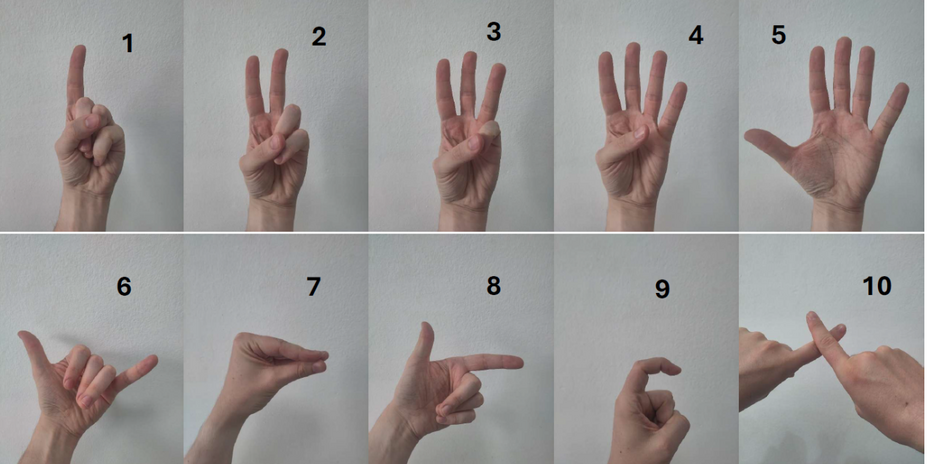When you arrive in your destination country, for me it was in Malaysia for my semester abroad at the Universiti Teknologi PETRONAS, the first thing you will notice are the vast differences between what you are used to and what you are confronted with, regardless of where you are going. Humans are creatures of habits, which unfortunately can lead to problems when you transplant those habits to other countries. There they might be interpreted differently or even offend the locals.
During your stay abroad, you should remain vigilant and consciously think about what you are doing and saying. Even about seemingly easy things that you have taken for granted your entire life.
It can be things like receiving things with your left (unclean) hand, sitting in a way that shows someone the bottom of your feet or touching someone’s head. All these are gestures that we don’t think much of in Central Europe, but can mean wildly different things in other cultures.
The Indian head wobble
One gesture that is usually taken for granted is affirmative nodding. In most parts of the world, nodding your head up and down unequivocally means “Yes” - while shaking your head left and right is universally regarded as “No”. This is so prevalent in Western society that it is one of the first things taught to children. But critically, it is not completely universal. In parts of countries like for instance in India, it is more common to gently wobble your head side to side.
When confronted with this for the first time, you could be forgiven for thinking this gesture can express concern or uncertainty. Especially because it can mean just that when it is done very slowly. But it can also mean “Yes”, or “No” – depending on the context and the exact movement. Unpacking the specific meaning requires a lot of knowledge of social queues and cultural knowledge. Luckily there is a good chance you will be understood in India, even if you stick to up and down nods and side to side shakes.
From my own experience, I can share a little anecdote about this gesture: I had a tutor during my exchange semester in Malaysia who was raised in India, and he would wobble his head every time I would have to present a solution on the black board in his class. Taken aback, I took this to mean he disagreed with my approach to the question, but he never voiced any criticism, just asked me to sit back down. Frustratingly, this went on for some weeks, until I had to ask him what the problem was, which is when he explained to me that my answers were absolutely fine, and that he was subconsciously doing a “yes wobble” without thinking.
Counting in China
When someone asks you to count to ten on your fingers, you would think there is only really one way to go about this. You simply extend a finger of your hand and for each extended finger, you count the number. If the famous scene of the movie “Inglorious Basterds” taught us anything, the only cultural difference in finger counting is that some regions of the globe start with their thumb, while others start with their index finger.
Except that’s not true! In fact, entirely different systems for finger counting exist, like for instance in parts of Asia as China. There, some people use a dedicated gesture for each number, much like you would when talking in sign language. While one to five is usually counted much like here in the West, six is counted by making a fist and extending your pinkie finger and thumb. Seven is counted by making what can only be described as a duck shadow puppet. See the enclosed photo for a better explanation than one that can be delivered by words.
Embarrassingly I was not aware of the Chinese counting system when I did my exchange semester in Malaysia (which has a big Chinese population). During my stay, I ordered Gyoza in a Chinese restaurant. While being asked if I wanted four or six Gyoza, the waitress emphasized her question by showing me the number six in the Asian counting system. Some people would recognize the number six also as the “Hang Ten”, the traditional way surfers greet each other. At the time, I was fully convinced she was somehow able to tell that I had just completed my first beginner surfing lessons and proudly replied to her inquiry by giving her a proud “hang ten”. Luckily, she didn’t seem to notice.
Different countries, different religions
One of the biggest sources of cultural misunderstandings can be due to rules dictated by different religions. You might think that religious rules don’t apply to you, if you are not a believer in the local religion. But that is not necessarily true. You could also offend your fellow students by completely disregarding these rules or might even break the law depending on the country. Therefore, my advice:
Before starting your exchange semester, I would strongly recommend you to familiarise yourself with the religious laws and customs of your destination country.
During my stay in a strictly religious country like Malaysia, it happened to me countless times that I (without thinking) extended my hand in order to greet a woman who had just introduced herself to me. Usually they would not reciprocate, but only nod or smile. This was confusing to me, until I learned that if they are strictly religious, they avoid touching the opposite gender at all. Even couples try not to get too touchy in public spaces as “PDA” or “public displays of affection” is very frowned upon. In some countries in the Middle East, it is even forbidden entirely and may be punished by fines.
Other important factors to consider when choosing a predominantly Muslim country are for example the local dietary restrictions. Of course, everybody is aware that eating pork is considered pretty gross in these cultures, but even eating the right things at the wrong time might get you in trouble. At least it happened to me, during my stay in Malaysia, when I entered a local supermarket in order to grab a quick snack. Supermarkets there often provide a seating area, so that is where I was planning to sit and eat. As soon as I sat down, the cashier asked me what I was doing. He then explained to me that eating my snack in front of him offends him, because it is the middle of Ramadan. Ramadan is a month during which Muslim people don’t eat or drink from sunset to sundown. He had not eaten since seven in the morning, which obviously also did not help his mood. I tried to reason with him and tell him that I am (quite obviously) neither Malaysian nor Muslim, but he was undeterred. He politely but sternly asked me to leave the store as to not accidentally persuade him to sin. I proceeded to eat my sandwich in secret behind some bushes.
Conclusion
Honestly, living in another country can make you feel like you have landed on a different planet. You will probably mess up a few times, and that’s totally normal. The best thing you can do is keep an open mind, pay attention to what’s going on around you, and don’t be afraid to ask questions if you’re confused.
Usually, people will forgive you for not knowing their local customs, but it is still highly recommended to read up on it as much as you can before you start your exchange semester. At the very least in order to not make the same mistakes as I have told you about here.
Want to learn even more about how to prepare yourself properly for an exchange semester or year abroad? Then take a look at the blog post “14 things you should definitely know before going abroad!”.










